WAR IN EUROPE OP-ED
Beyond the battlefield, the cost of the conflict in Ukraine is counted in many hidden ways
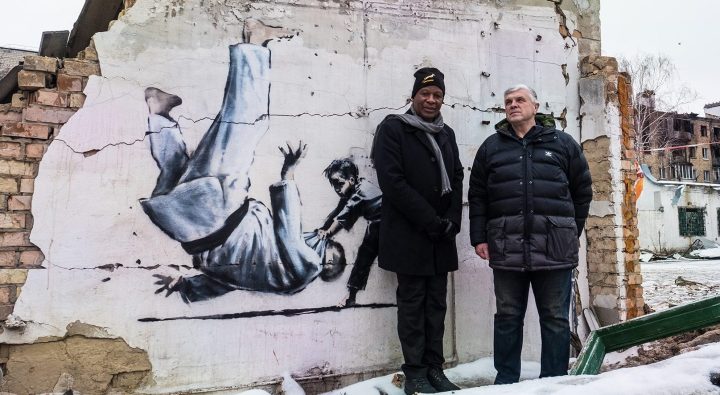
The war in Ukraine is in its eighth month. The costs of the conflict are massive, but they are also hidden. Still, the dire circumstances somehow bring out the best in human spirit and character.
Plastered on the blue and white walls surrounding the St Michael Monastery of the Orthodox Church in Kyiv are the names and faces of more than 4,000 Ukrainian soldiers killed since the war began. Outside we met two young women who were putting up a picture of the husband of one of them, killed in September, having returned to the front after being wounded in the first days of the war. The other young woman was there for her brother, a paratrooper, who died leaving behind three children and a pregnant wife.
We said the Lord’s Prayer together, outside in the snow, hand-in-hand, a moment that left us both in tears.
It is almost impossible to console such grief when emotions are raw, and there is little relief in sight. The four million Kyani, the citizens of Kyiv, are under virtual daily Russian bombardment of critical infrastructure, especially electricity. The government works around the clock to reinstate energy sources. With temperatures well below freezing, mayor Vitali Klitschko told us that within a couple hours the temperature inside is the same as that outside.

Thabo Makgoba, the South African Anglican Archbishop of Cape Town. With Putin’s brand of nationalism relying on the church, the leadership of the Ukrainian Orthodox Church in Kyiv has broken with Moscow. (Photo: Richard Harper)
The war in Ukraine is now in its eighth month. The costs of the conflict are massive, but they are also hidden.
They can be seen visibly in the destruction of infrastructure, more than $120-billion at last count. To this can be added the cost to the global economy – more than $3-trillion to date – including the negative impact on a billion Africans by the rise both in fertiliser and fuel charges and the shortage of Ukrainian grains on which many of the vulnerable depend.
It can also be assessed from the number of internally and internationally displaced (so-called IDPs) in Ukraine, 15 million of its 43 million people having been forced on the move since the start of the war on 24 February. Eight million have left Ukraine altogether. We visited one centre for IDPs in the company of the Ukrainian-Rwandan Olympic champion Zhan Beleniuk, which has seen 80,000 pass through its doors. Some of the children are there without their parents, or with just one parent, their fathers fighting at the front.
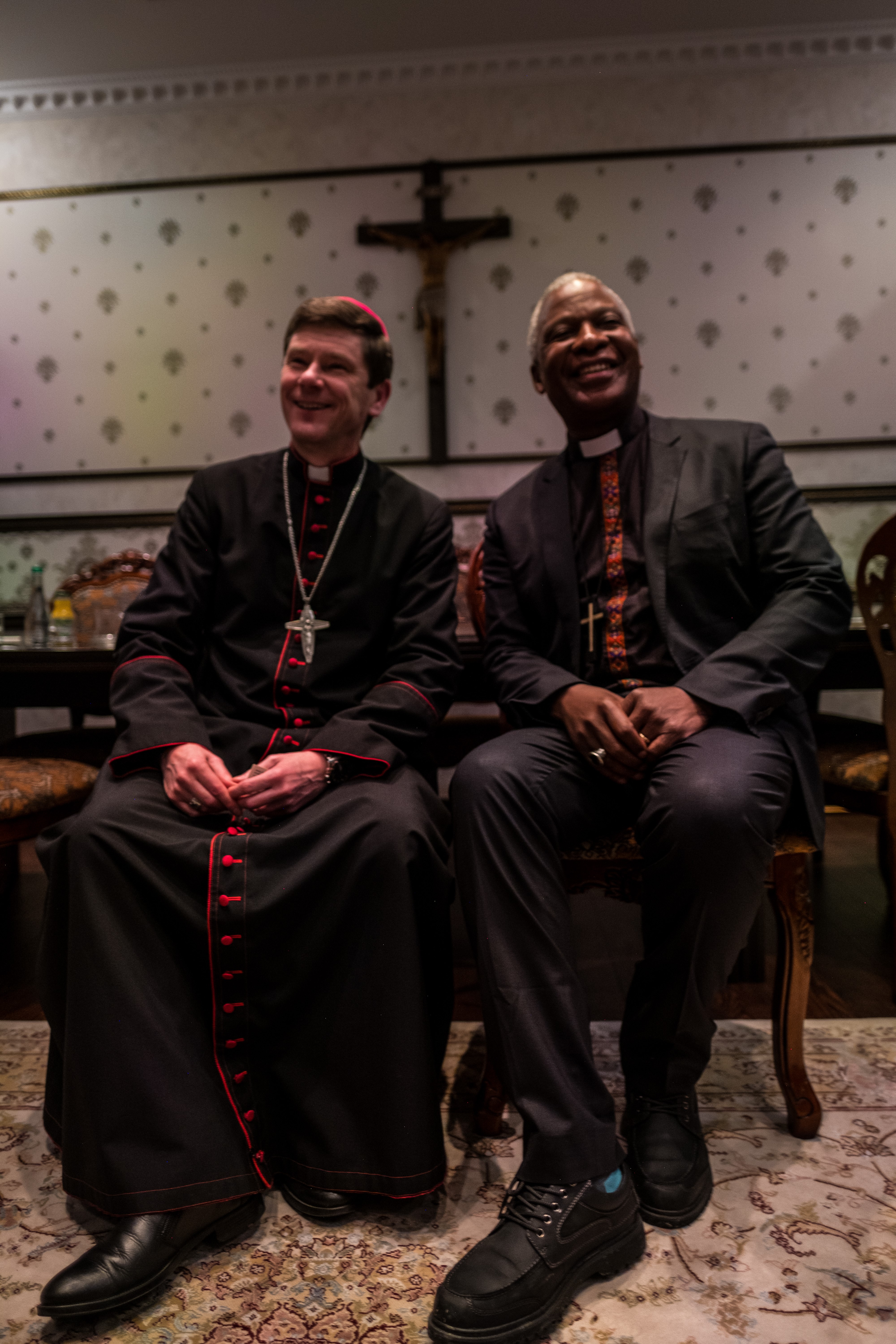
Vitaliy Kryvytskyi, Ukrainian Roman Catholic prelate, and Thabo Makgoba, the South African Anglican Archbishop of Cape Town. Without Kyiv’s continued resistance, the clergy fears Ukraine’s institutional and cultural character will be eliminated by Putin’s Russia. (Photo: Richard Harper)
These costs can also be counted through the loss of human life, perhaps as many as 150,000 having been killed since February, at least half of them Russian troops forced into a war of choice by their leadership, to pursue a misguided goal of reinstating Moscow’s regional hegemony. “We see our future as part of the European democratic family,” states Klitschko, echoing the words of every Ukrainian we met. “We don’t want to go back to the Soviet Union,” says the former world heavyweight boxing champ, “where I remember, there was no place for God.”
Oleksandra Matviichuk, the Nobel Peace laureate who we also met in Kyiv, reminds us of the cost of the failure of leadership. “Vladimir Putin is not afraid of Nato,” she says, “he is afraid of freedom.” She notes that “war is something inhuman, and yet we are human beings”. The conflict “is not a war between two states, but between two systems, one authoritarian, the other democratic. Russia shows others what they can get away with. If we don’t invent something to stop such barbaric actions, it will encourage other authoritarians to do the same.”
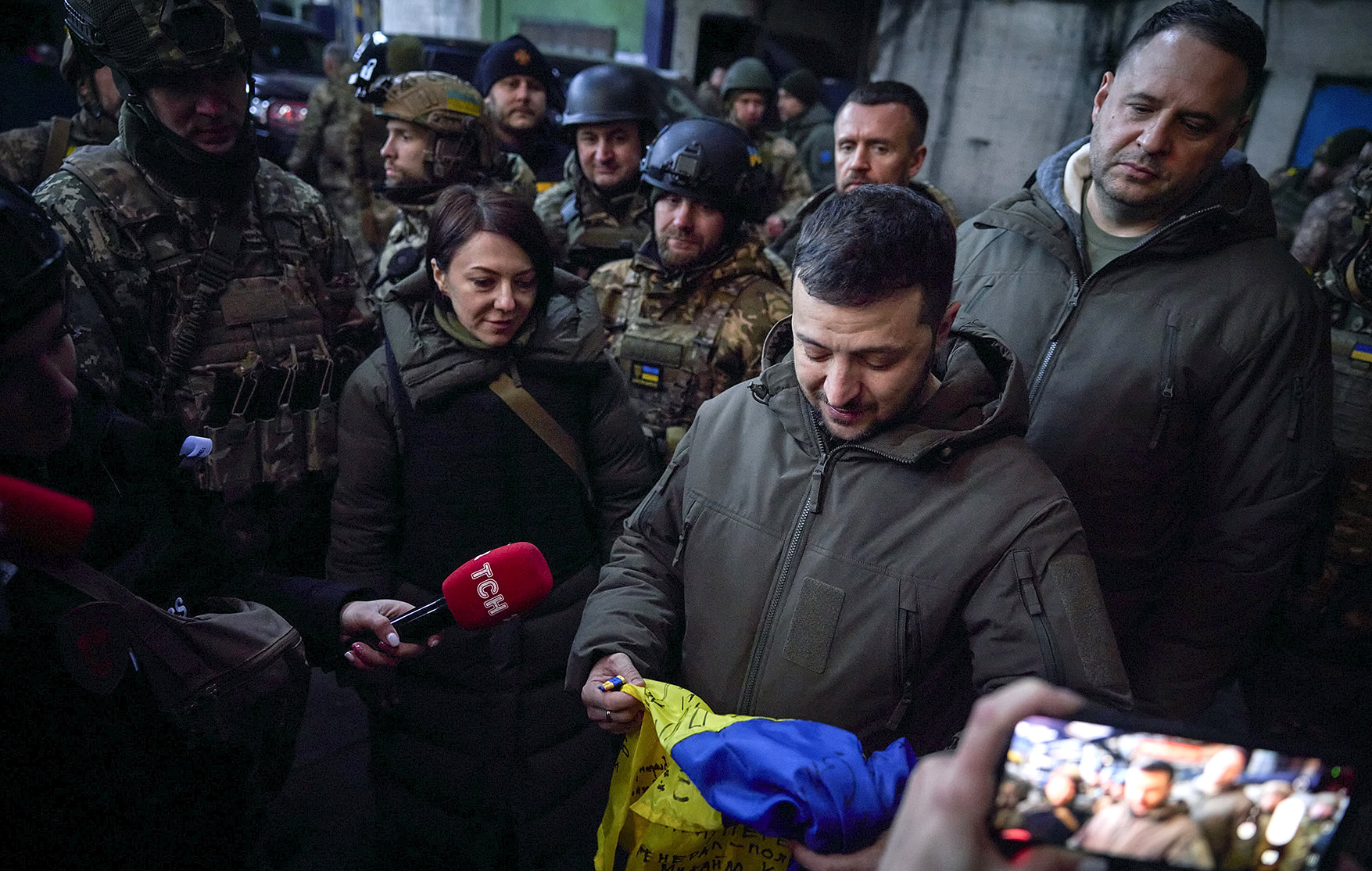
Ukraine’s President Volodymyr Zelensky (centre) meets with Ukrainian servicemen during his visit to Bakhmut, Donetsk region, eastern Ukraine, 20 December 2022. (Photo: EPA-EFE / UKRAINIAN PRESIDENTIAL PRESS SERVICE HANDOUT)
We visited Bucha, a suburb of Kyiv now synonymous with war crimes, where more than 400 innocents were murdered by Russian soldiers, many buried in the yard of the church of Andrew the Apostle.
In this environment, it is near impossible – and indeed inadvisable – to try to convince Ukrainians to stop fighting. An end to the war demands a “just peace”, where Ukrainians get their land back and the protections they need against Russian aggression.
The church leaders of many persuasions we met in Lviv and Kyiv were convinced of the struggle of this “just war”. The Orthodox Patriarch observed that “we are unbreakable because we have a strong spirit, and truth is on our side. We don’t want,” he said, “something belonging to our neighbours, but we only want to protect something that is our own.”
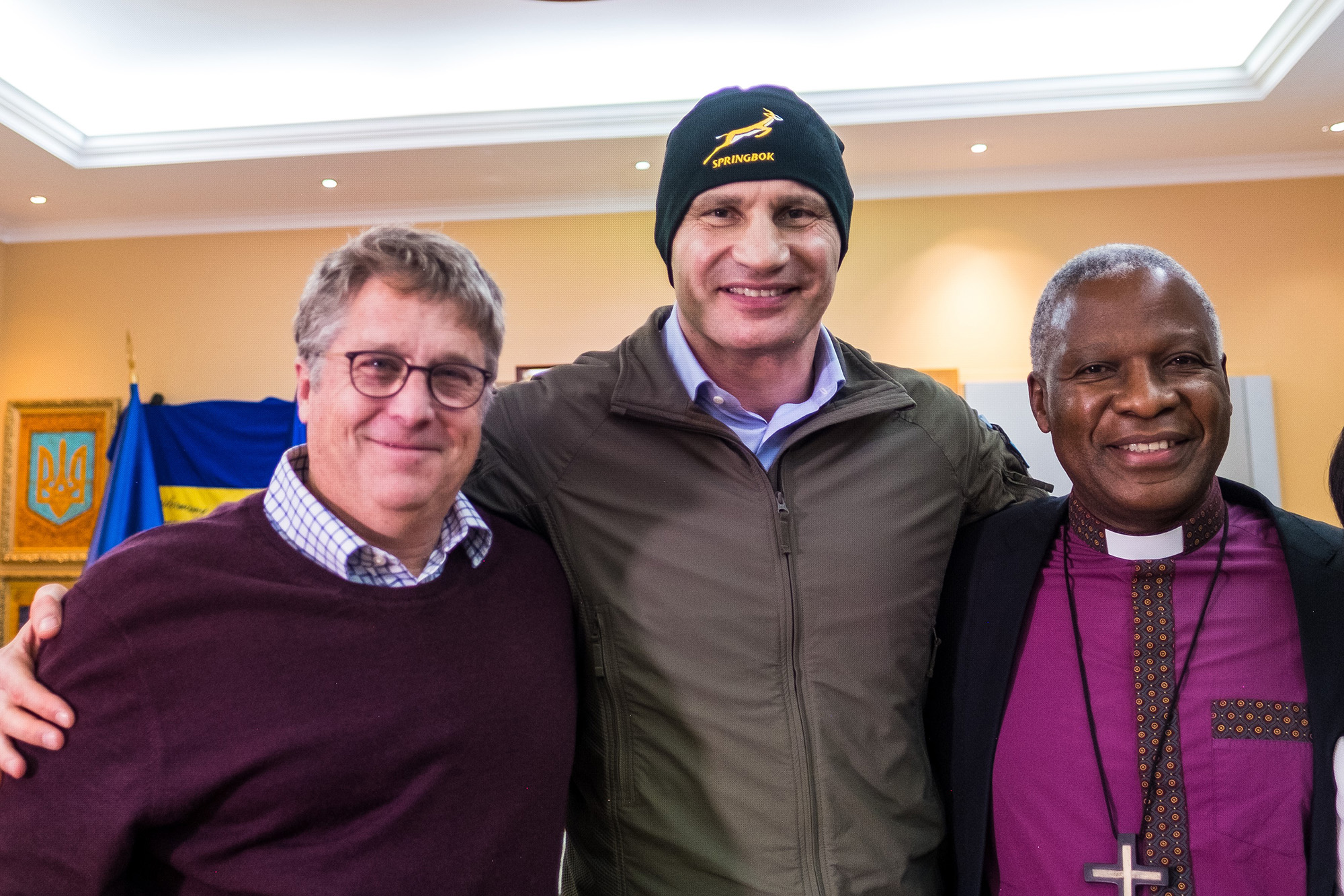
Greg Mills (left), director of the Brenthurst Foundation, Vitali Klitschko, Mayor of Kyiv, and Thabo Makgoba (right), the South African Anglican Archbishop of Cape Town. (Photo: Richard Harper)
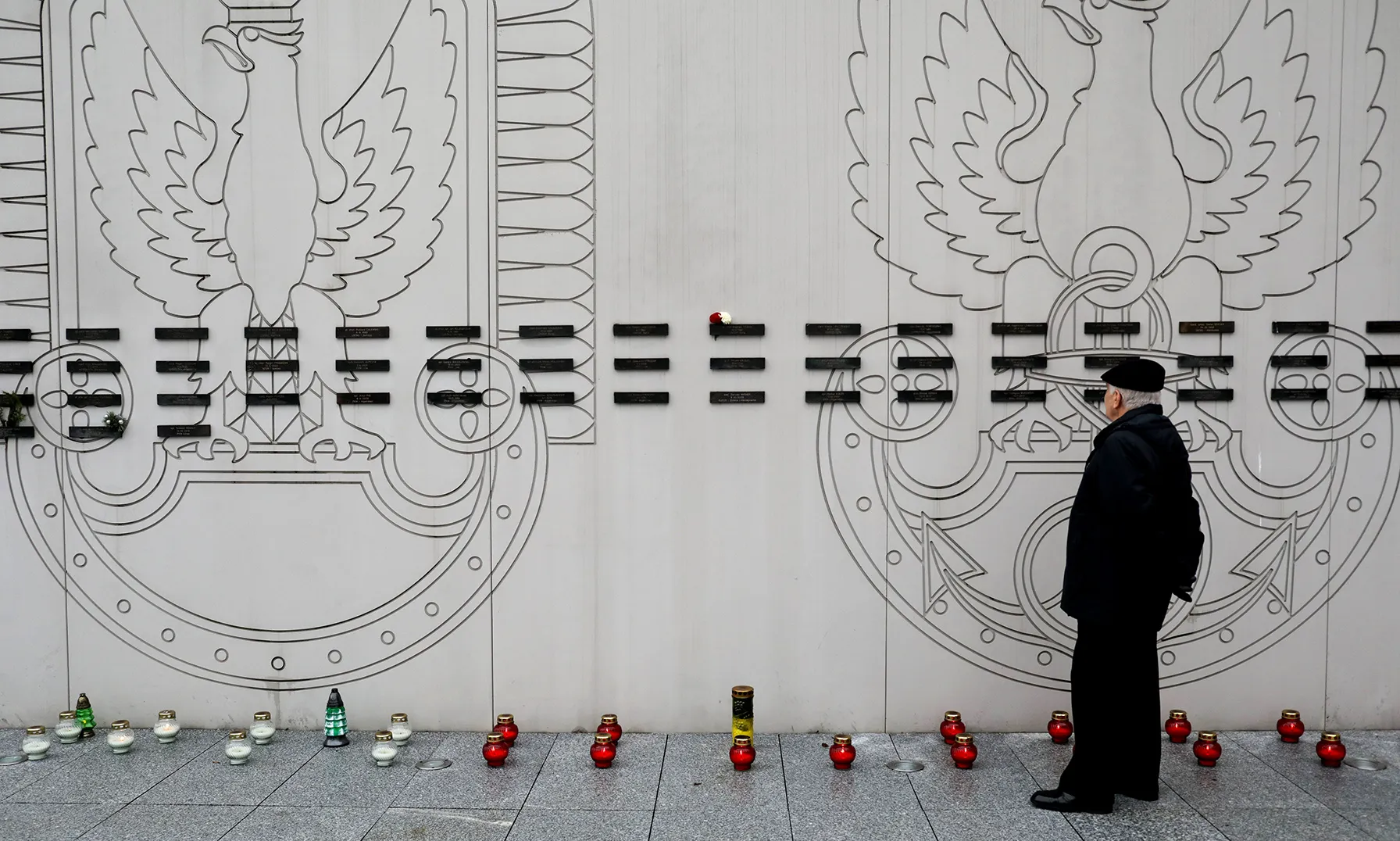
A man looks at the Wall of Remembrance at the Veterans’ Center for Actions Beyond National Borders during the commemoration of the Day of Remembrance of the Fallen and Deceased on Missions and Military Operations Beyond National Borders in Warsaw, Poland, 21 December 2022. (Photo: EPA-EFE / ALBERT ZAWADA POLAND OUT)
Best in human spirit
The costs of the war are also in the price of opportunities and livelihoods snuffed out, people going cold and hungry in the fierce Central European winter, and in the difficulty of sustaining normality in the face of incessant Russian attacks. As Russia has increasingly struggled on the battlefield, it has turned its attention to softer, civilian targets.
As we bask in the African sun, Lord knows the world needs a good dose of the metaphorical kind, especially in Ukraine. Never mind being on the “right” side of the fight, war is fundamentally so negative and draining, it inevitably drags people down as it grinds on.
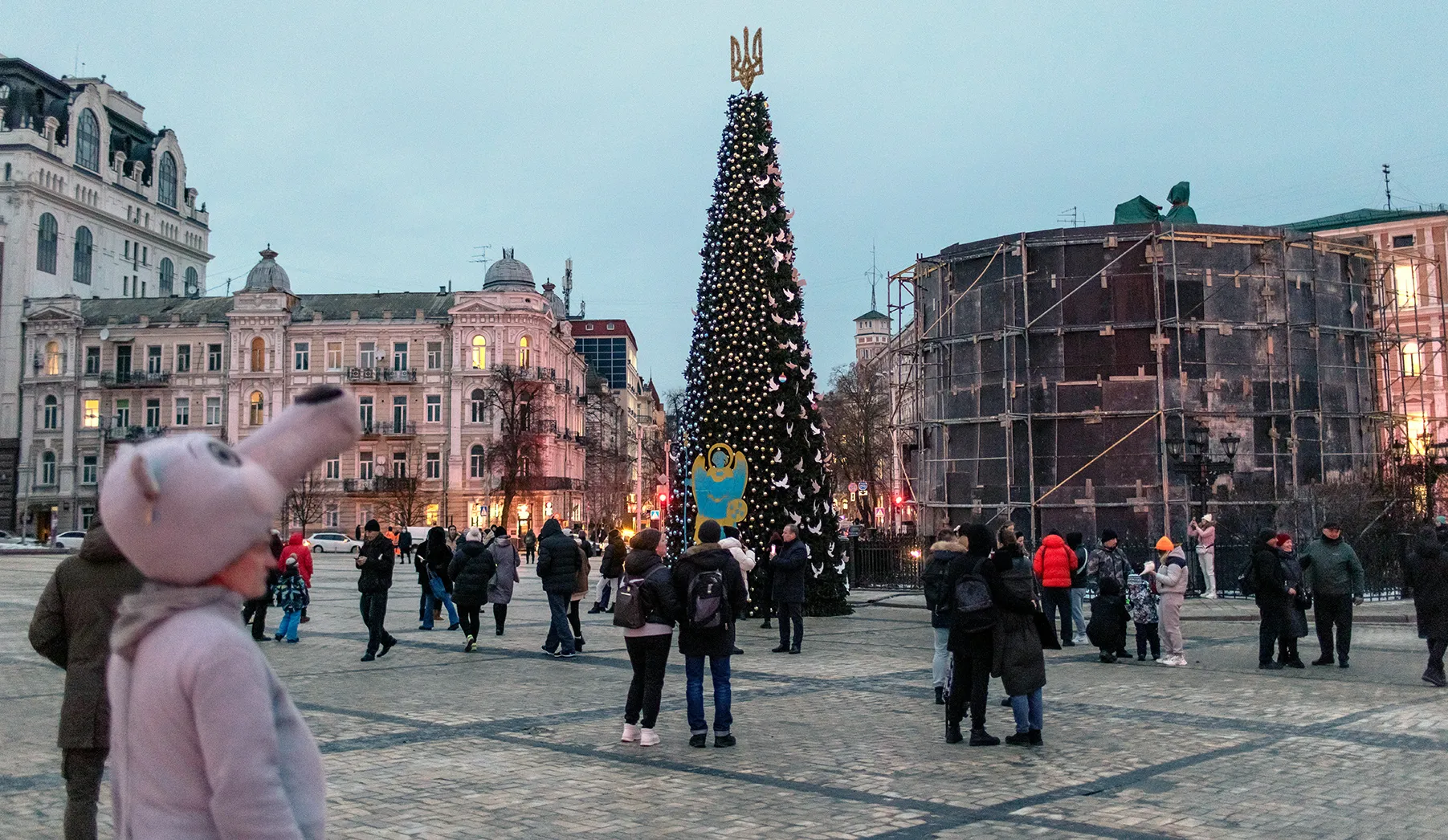
People gather next to a Christmas tree installed at Sophia Square, in Kyiv, Ukraine, 20 December 2022, amid the Russian military invasion. (Photo: EPA-EFE / ROMAN PILIPEY)
Visit Daily Maverick’s home page for more news, analysis and investigations
Still, the dire circumstances somehow bring out the best in human spirit and character.
“We become human beings when we support each other,” said Matviichuk. “War turns people into numbers,” she says. “Only justice returns people their names.” Her Centre for Civil Liberties has already identified 27,000 cases of war crimes, “the tip of the iceberg”, from forced abductions, to rape and murder, where terror, she told us, is used as a tool of war, to attempt to instil a “learned helplessness”. This is a method, she says, adopted by those who fear freedom.
Read more in Daily Maverick: “It’s freezing, drones and missiles rain down, but Ukrainians are up for the challenge”
While there is a human tendency to look at the battlefield to assess the longer-term course of the conflict, war inevitably places a premium on moral authority in its resolution. She calls for the exclusion of Russia from the UN for its “systematic violation of the Charter”, for the creation of a UN war crimes tribunal, and for mass mobilisation to add to the pressure for peace.
By standing up to this terror, Ukraine offers a living and breathing example of a successful democratic transition as much as it promises a fresh start in a global system which might offer protections to peoples over states. The need for the creation of such a rules-based system – at home and outside – is a common mantra among Ukrainians. “We need to develop an international system to provide guarantees to ordinary people,” notes the Nobel laureate.
Read more in Daily Maverick: “Ukraine and Africa – brothers in freedom”
Until then, Ukraine’s continued freedom is a victory for those everywhere who cherish a system respecting individual human rights, of inclusivity rather than elite privilege and protection, of the right to self-determination instead of imperialism, and of liberty over totalitarianism. It demands our support.
For humanity is indivisible. As Africans we know, probably better than most, what it means to suffer under the yolk of a violent oppressor.
It is as clear as day against night, of good over evil, on which side of history Africans should be in this struggle. DM
Makgoba is the Archbishop of Cape Town, Greg Mills is the director of the Brenthurst Foundation. Both have been in Ukraine this week.

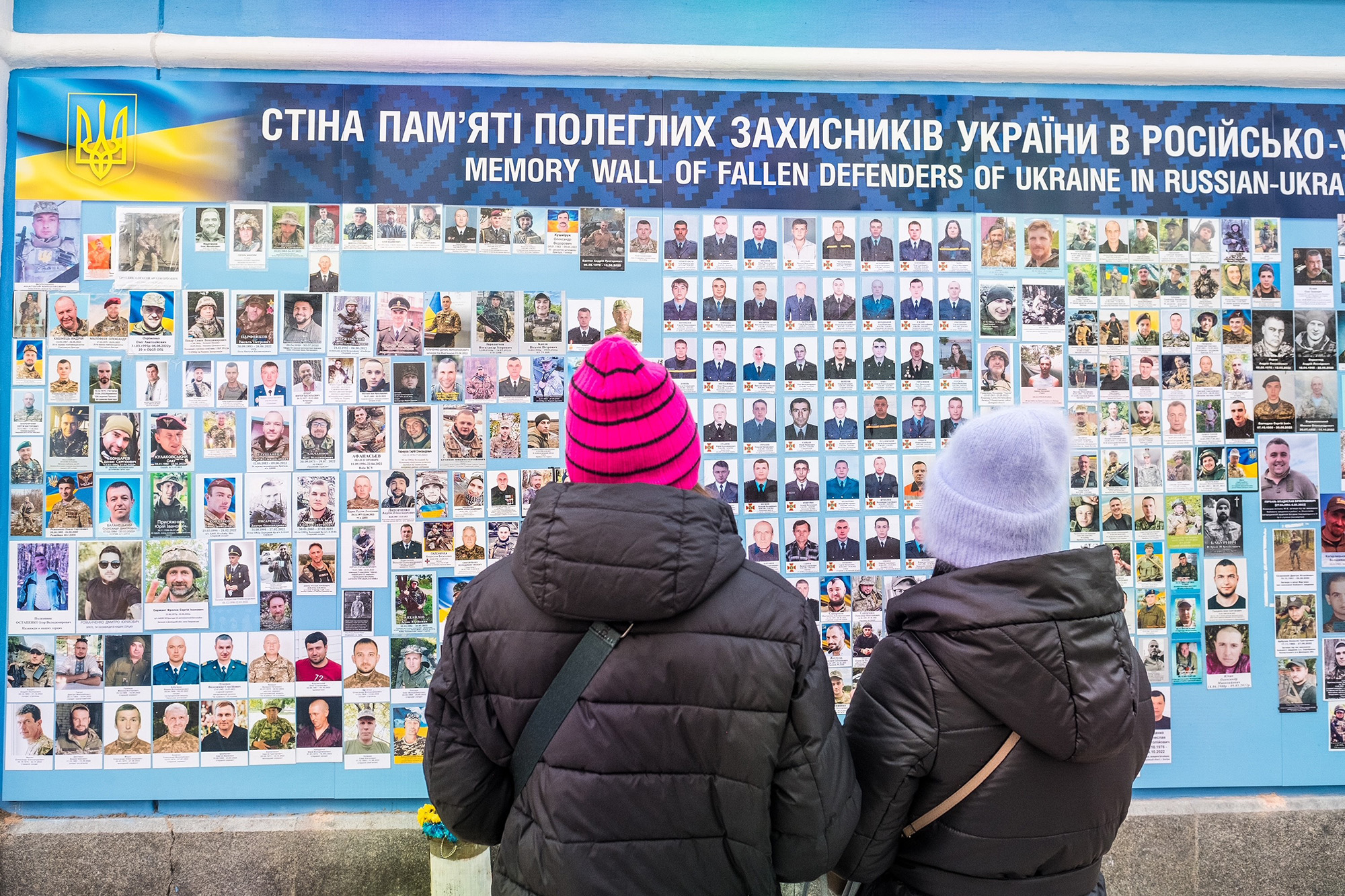

















 Become an Insider
Become an Insider
Comments - Please login in order to comment.